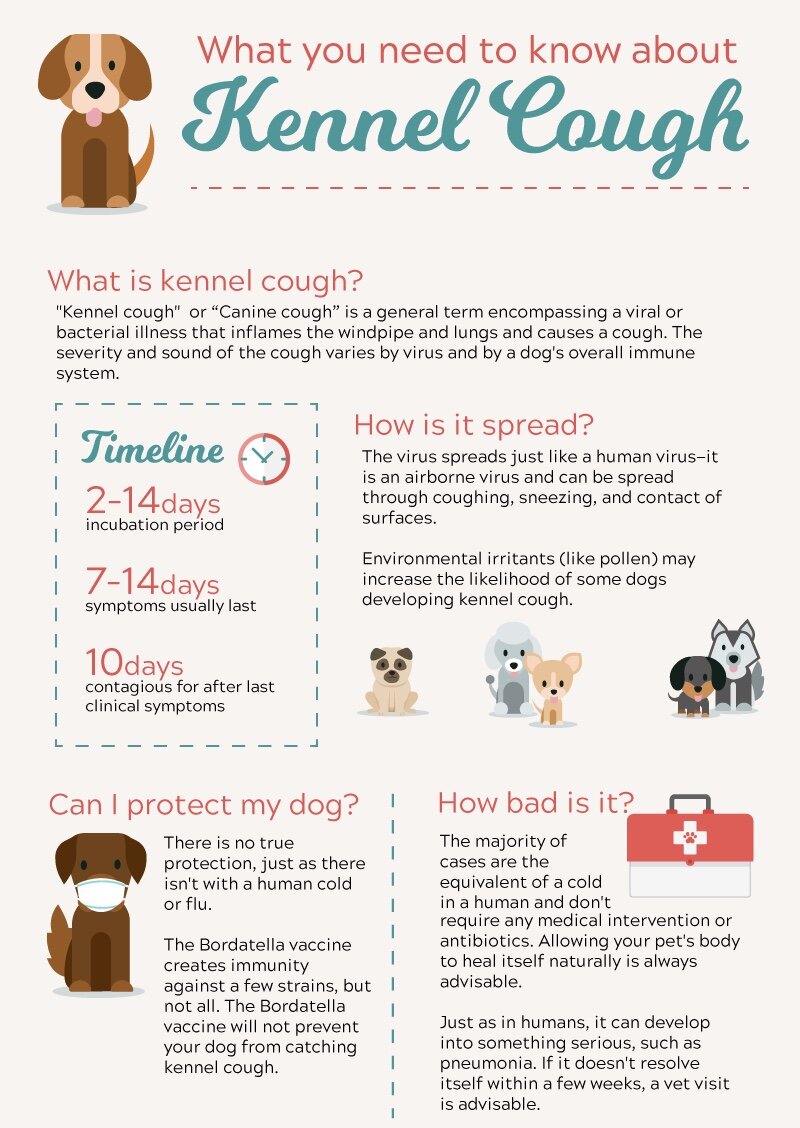It’s kennel cough season and we’re here to help you recognize the signs and symptoms of kennel cough.
what is kennel cough?
Kennel cough (canine infections tracheobronchitis) is a highly contagious respiratory disease. Kennel cough is most commonly contracted at dog parks, shelter environments, doggie daycare and boarding facilities. Much like the common cold in humans, kennel cough can be spread from one dog to another through airborne transmission, nose to nose contact, or sharing water/food bowls. Good news is that kennel cough is super treatable although it is harsher for young and immunocompromised dogs.
How to Tell if your pup has it?
You’ll know, trust me! My dog Shyla has had it twice and it’s a sound unlike anything else I’ve heard come out of her. Other than that here are some symptoms to watch out for:
cough (it will sound like a your pup has something stuck in their throat or like a honking sound)
sneezing
runny nose
loss of appetite
lethargy
low fever
HOW IS IT TREATED?
There is a vaccine for it, but much like the flu vaccination there are different strains that the vaccination does not protect against, so a trip to the vet to confirm the diagnosis is needed. Depending on the severity of symptoms, your vet will either let the virus run its course or will prescribe antibiotics. There are also some natural ways to help your pup through this with honey and coconut oil. Whole Dog Journal has laid out some really great ways to help clear up kennel cough naturally.
ways to prevent kennel cough
It is so important to pay attention to our pups. While kennel cough is usually very treatable it can sometimes develop into more serious conditions like pneumonia. Kennel cough can be prevented by limiting exposure to infected dogs and staying away from areas like the dog park when an outbreak has occurred.
what if symptoms persist?
If symptoms persist for more than two weeks it could be a sign of something more serious like pneumonia or congestive heart failure. Another trip to the vet will be needed to rule out anything more serious.

